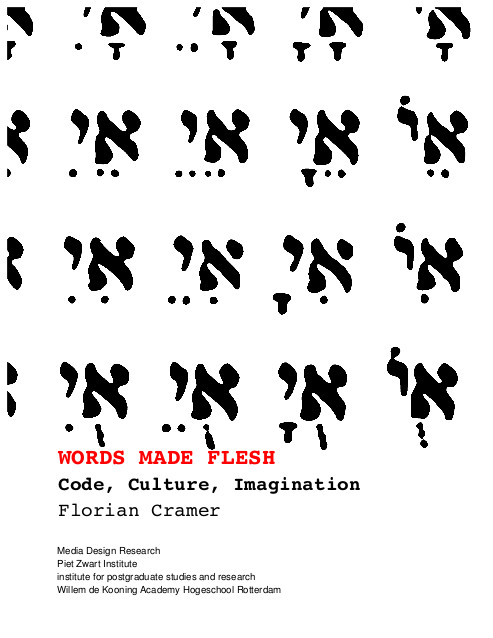The Myth of the Machine, 2 Vols: Technics and Human Development & The Pentagon of Power (1967/1970–) [DE, YU, RU, ES]
Filed under book | Tags: · art, critique of technology, history of science, history of technology, labour, language, machine, power, science, technology

Mumford explains the forces that have shaped technology since prehistoric times and shaped the modern world. He shows how tools developed because of significant parallel inventions in ritual, language, and social organization.
Publisher Harcourt, Brace & Jovanovich, 1967 and 1970
342 and 496 pages
Wikipedia (EN)
Mythos der Maschine. Kultur, Technik und Macht (German, trans. Liesl Nürenberger and Arpad Hälbig, both volumes, 1977, updated on 2014-3-19)
Pentagon moći: Mit o mašini 2 (Serbo-Croatian, trans. Nikica Petrak, 1986/2009, added on 2014-3-19)
Mif mashiny: tekhnika i razvitie chelovechestva (Russian, trans. T. Azarkovich and B. Skuratov, 2001, DJVU, added on 2014-3-19)
El mito de la máquina. Técnica y evolucion humana (Spanish, trans. Arcadio Rigodón, 2010, added on 2014-3-19)
El mito de la máquina. El pentágono del poder (Spanish, trans. Javier Rodríguez Hidalgo, 2011, added on 2014-3-19)
Florian Cramer: Words Made Flesh: Code, Culture, Imagination (2005)
Filed under book | Tags: · art, art history, code, code poetry, computation, experimental literature, kabbalah, language, literature, philosophy, poetry, religion, software, software art, technology

“Executable code existed centuries before the invention of the computer in magic, Kabbalah, musical composition and experimental poetry. These practices are often neglected as a historical pretext of contemporary software culture and electronic arts. Above all, they link computations to a vast speculative imagination that encompasses art, language, technology, philosophy and religion. These speculations in turn inscribe themselves into the technology. Since even the most simple formalism requires symbols with which it can be expressed, and symbols have cultural connotations, any code is loaded with meaning. This booklet writes a small cultural history of imaginative computation, reconstructing both the obsessive persistence and contradictory mutations of the phantasm that symbols turn physical, and words are made flesh.”
Editor: Matthew Fuller, additional corrections: T. Peal
Published within Media Design Research programme, Piet Zwart Institute, Willem de Kooning Academy Hogeschool, Rotterdam
GNU General Public License 2; GNU Free Documentation License 1.2; Creative Commons Attribution-ShareAlike License 2.0
141 pages
Review: Tomáš Javůrek (Joinme, 2018, CZ).
PDF (updated on 2012-10-11)
HTML (added on 2013-7-1)
Sequel: Exe.cut(up)able statements: Poetische Kalküle und Phantasmen des selbstausführenden Texts (2011, in German).
Comment (0)
